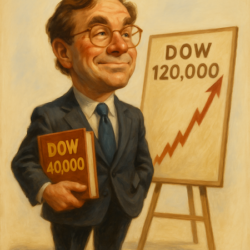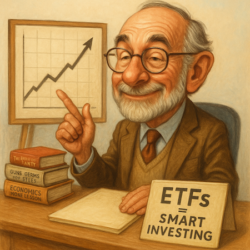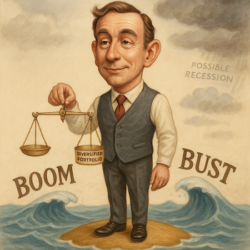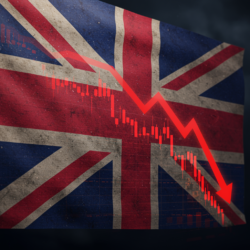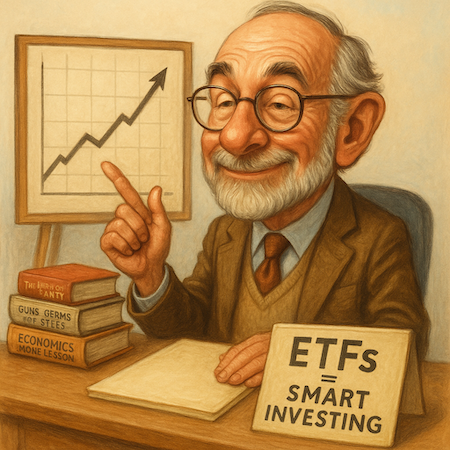 We’ve mentioned financial history books before.
We’ve mentioned financial history books before.
From time to time, we dive into them. But your editor’s view is that it’s a mistake to read only finance or economic titles.
You can often learn just as much about how the world works — and how markets behave — from non-financial books too.
That said, there are several excellent financial reads we’re happy to recommend:
- The Birth of Plenty by Peter L Bernstein
- Against the Gods by Peter L Bernstein
- Collapse by Jared Diamond
- Guns, Germs, and Steel by Jared Diamond
- Mr Market Miscalculates by James Grant
- The Forgotten Depression by James Grant
- Economics in One Lesson by Henry Hazlitt
If you’re keen to go deeper, try Man, Economy, and State by Murray Rothbard. It’s a challenging read, but a fascinating look into how a true free-market economy functions.
So yes — if you want to read up on markets and economics, those are a great place to start.
But here’s our broader point: don’t get lost in financial reading. At some stage, you have to ask what you’re trying to achieve from all the knowledge you’re absorbing.
Is it pure interest, or are you hoping to apply what you’ve learned to make better investment decisions?
From experience — and we’ve been at this a long time — too much information can sometimes do more harm than good. It’s easy to over-complicate what should be simple…or to fall into “paralysis by analysis.”
That is, you absorb so much, you don’t know where to start. So, instead of starting, you try to absorb more. Next thing you know, you’re 86 years old and you haven’t invested a darn thing in anything.
What a waste.
Again, we’ve been in this game a long time. Most of it working with retail investors. So, we’ve seen their habits and observed their faults and tendencies.
The over-complication of simple financial practice is all too common. It’s why we continue to repeat our best advice for any investor: the best thing you can do with the bulk of your investable capital is to put it into low-cost exchange-traded funds (ETFs).
We know that’s not the most thrilling suggestion — it’s not why most readers subscribe to our newsletters. But it’s sound, proven, and effective.
That doesn’t mean putting every last pound into ETFs. And it doesn’t mean putting it into a single ETF.
But however much you’re ready to invest. Don’t delay. First thing tomorrow morning, when the markets open. You won’t regret it in the long run.
Cheers,

Kris Sayce
Editor & Publisher, Investor’s Daily
P.S. Reading about markets can only take you so far. The real education comes from seeing ideas put to work — in real time, with real results. That’s what our analysts are doing every week: identifying the trades, trends, and sectors that matter now, and showing you exactly how to act on them. If you’re ready to move from theory to practice, this is where to start.
What you may have missed…
The Ferrari Fallacy
When Morgan Housel said he once wanted a Ferrari, a mansion, and a Rolex “because I had nothing else to offer,” it hit home. Because that’s the trap most of us fall into — mistaking money for meaning. Read more here…
The equation of life doesn’t leave much room for renewables
This is the first time in human history when we have transitioned to an energy system with a lower EROI. So we don’t really know what happens next. Read more here…
A Tale of Three Headlines and MUGA
I was watching Great British Railway Journeys the other night. For those interested, it was Episode 12, Season 16, Ironbridge to Coseley. During the episode, Michael Portillo was visiting the Victorian Living Museum, right in the heart of the Black Country, a place I know well. Read more here…
Socialism Whacked
Looking out at the vast universe of politics, we see dead, black…empty…and cold…space. But a closer look reveals two flickering stars – one burning much brighter after last Sunday’s election. Read more here…
The next phase of Blackout Britain is terrifying
Back in 2023, London Mayor Sadiq Khan admitted something astonishing. Transport for London raids the London Transport Museum to repair its trains. It’s good for a laugh. And tells you lots about the state of the UK. Read more here…
